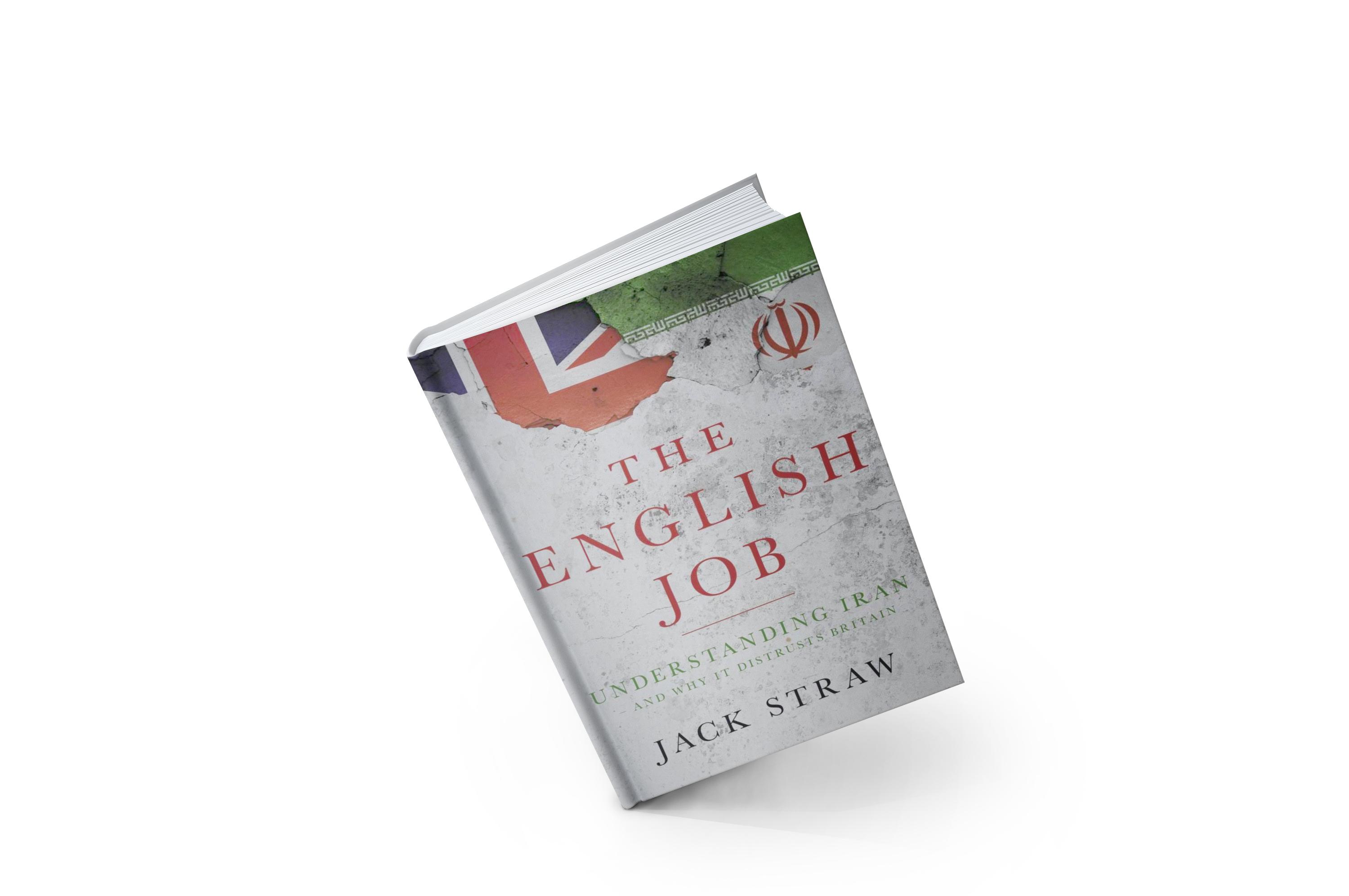-
The Cunning Fox: Britain and Iran

Iran, Straw recounts in The English Job (subtitle: Understanding Iran and Why It Distrusts Britain), is the only country in the world that still thinks that the UK is a global superpower. “To the Iranians, however, it’s not a joke.” Suspicion and paranoia about foreign interference are the enduring legacy of the troubled relations between the two countries. He finds Iran simultaneously fascinating, infuriating and perplexing.
Straw’s 2001 visit came in the wake of the 9/11 attacks on America – and before the US invasion of Afghanistan. Tehran condemned the attacks and also provided “much valuable intelligence” in return for US information on Al-Qaida leaders who had fled to Iran. But President George Bush’s speech, in which he included Iran in his famous “axis of evil,” only benefitted the hardliners in Tehran, he argues.
Even then he was aware of the strong feelings Iranians harbour about Britain’s role. It was seen as the “old colonial fox” that had taken advantage of their country’s weakness in the 19th century. It occupied part of it during and after the second world war. Britain took part in the coup against the democratically-elected Prime Minister Mossadegh in 1953, supported the Shah and supplied weapons to Saddam Hussein during the Iran-Iraq war.
Soon afterwards Straw represented Britain when it tried, along with France and Germany – acting as the E3 – to engage Iran on the sensitive question of its nuclear programme. Efforts ended when Mahmoud Ahmadinejad (“on a different planet from the rest of us”) became president and were only revived under the Obama administration after 2009.
The British embassy in Tehran, with two separate compounds, is still one of the largest and best known in the capital. The US embassy – still referred to in Persian as the “nest of spies” - is now a museum commemorating its seizure and the subsequent hostage crisis during the revolution.
Inspiration for the book came long after Straw ended his official role. In 2015 he went on holiday to Iran with his wife and two friends. They were followed and harassed by members of the Basij militia. It was indeed a holiday to remember – but not for relaxing reasons. He calls it “forced conscription into a thriller.”
The Basij handed out a petition: “Although it is in our tradition as Iranians to welcome guests, this ‘welcome’ gesture does not apply to you!” it began. “The people of Iran do not have good memories about you and the British regime. “You know better than us about the crimes and the …plots that were orchestrated by your country against the people of this land.”
Straw reflects interestingly on the gap in perceptions between the two sides: “These days there is no collective memory in Britain that we, with the Soviets, ran Iran for almost five years. But the memory in Iran is fresh, and it is everywhere,” he writes. The US led the coup against Mossadegh - a defining moment of 20th century Iranian history. But “it would and could not have happened at all but for us,” he admits frankly. “It was an English job – and we are still living with the consequences.”
Britain’s role fused with the concept of gharbzadegi (Westoxification), which became a standard term of revolutionary politics after 1979. The west’s support for Saddam during the eight bloody years of the Iran-Iraq war is still a recent memory for the country’s current leaders - including the IRGC’s Quds force commander Qassem Soleimani- as is the support of most Arab states except Syria.
A persistent theme is the fact that the representatives of the Iranian state – diplomats and nuclear negotiators who maintain contact with foreigners – have no control over far more powerful elements: the Supreme Leader, the IRGC, the Basij. As he summarizes the question: “The hard end of state power is completely beyond the influence of the elected government.”
Straw is certainly critical of Iran, but not fundamentally hostile. John Bolton, President Donald Trump’s hawkish –and now former - national security adviser, even dubbed him “Jack of Tehran.” He observes that a consistent theme of Iran’s foreign policy is the desire to be respected internationally as one of the dominant powers of the region. “Indeed, it is more than just a desire; rather a craving. It is based on a deep-seated sense of Iranian nationalism, of pride in the antiquity of its civilization, and of continued resentment that the country’s strategic importance has not been properly recognized.”
 Iran,Britain,Jack Straw
Iran,Britain,Jack StrawThe English Job: Understanding Iran and Why It Distrusts Britain
Tags
You May Also Like
Popular Posts
Caricature
BENEFIT Sponsors BuildHer...
- April 23, 2025
BENEFIT, the Kingdom’s innovator and leading company in Fintech and electronic financial transactions service, has sponsored the BuildHer CityHack 2025 Hackathon, a two-day event spearheaded by the College of Engineering and Technology at the Royal University for Women (RUW).
Aimed at secondary school students, the event brought together a distinguished group of academic professionals and technology experts to mentor and inspire young participants.
More than 100 high school students from across the Kingdom of Bahrain took part in the hackathon, which featured an intensive programme of training workshops and hands-on sessions. These activities were tailored to enhance participants’ critical thinking, collaborative problem-solving, and team-building capabilities, while also encouraging the development of practical and sustainable solutions to contemporary challenges using modern technological tools.
BENEFIT’s Chief Executive Mr. Abdulwahed AlJanahi, commented: “Our support for this educational hackathon reflects our long-term strategic vision to nurture the talents of emerging national youth and empower the next generation of accomplished female leaders in technology. By fostering creativity and innovation, we aim to contribute meaningfully to Bahrain’s comprehensive development goals and align with the aspirations outlined in the Kingdom’s Vision 2030—an ambition in which BENEFIT plays a central role.”
Professor Riyadh Yousif Hamzah, President of the Royal University for Women, commented: “This initiative reflects our commitment to advancing women in STEM fields. We're cultivating a generation of creative, solution-driven female leaders who will drive national development. Our partnership with BENEFIT exemplifies the powerful synergy between academia and private sector in supporting educational innovation.”
Hanan Abdulla Hasan, Senior Manager, PR & Communication at BENEFIT, said: “We are honoured to collaborate with RUW in supporting this remarkable technology-focused event. It highlights our commitment to social responsibility, and our ongoing efforts to enhance the digital and innovation capabilities of young Bahraini women and foster their ability to harness technological tools in the service of a smarter, more sustainable future.”
For his part, Dr. Humam ElAgha, Acting Dean of the College of Engineering and Technology at the University, said: “BuildHer CityHack 2025 embodies our hands-on approach to education. By tackling real-world problems through creative thinking and sustainable solutions, we're preparing women to thrive in the knowledge economy – a cornerstone of the University's vision.”
opinion
Report
ads
Newsletter
Subscribe to our mailing list to get the new updates!






















